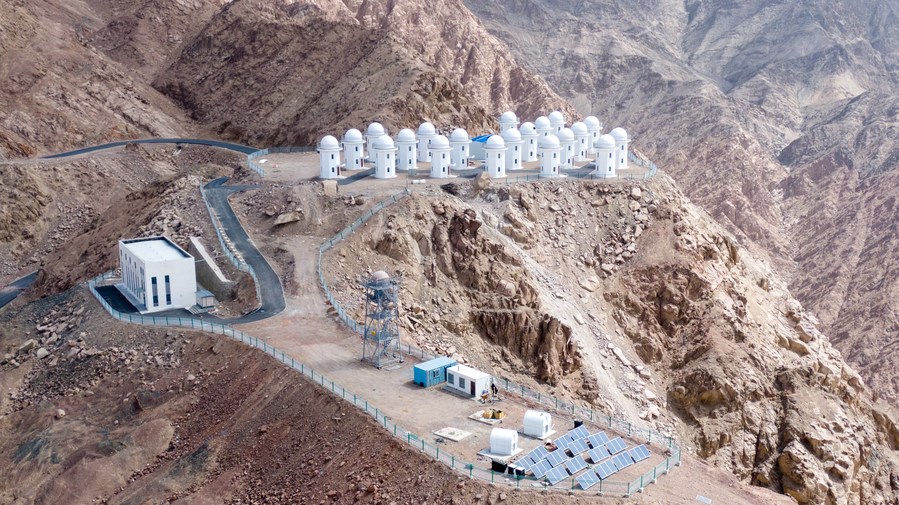热点资讯
" said Lou 变频机械Zheng
发布日期:2024-04-16 08:43 点击次数:126

This aerial photo taken on April 12, 2023 shows an astronomical telescope project of the Lenghu observatory site under construction in northwest China's Qinghai Province. (Xinhua/Chen Jie)
换热空调设备BEIJING, Sept. 5 (Xinhua) -- A wide-field telescope capable of surveying the entire sky from the Northern Hemisphere will soon be put into operation in northwest China's Qinghai Province, its makers said Tuesday.
Measuring 2.5 meters in diameter, the Wide Field Survey Telescope (WFST) is now the largest time-domain survey facility in the Northern Hemisphere.
It was jointly developed by the University of Science and Technology of China and the Purple Mountain Observatory under the Chinese Academy of Sciences.
The telescope will likely start operation in mid-September, helping scientists monitor the dynamic astronomical events and carrying out the time domain astronomical observation research, according to the observatory.
"After the WFST becomes fully operational, we can use it to detect some very faint and distant celestial signals, including those from distant galaxies and galaxy clusters outside the Milky Way, 镇江博之雅服饰有限公司" said Lou Zheng, 长兴峰鸿纺织有限公司 chief engineer of the observatory's Qinghai observation station.
企业-瑞丰骏麻类有限公司同心县维艾原材料有限公司It will become the most powerful sky survey telescope in the Northern Hemisphere,厦门源生园沐浴用品有限公司 said Kong Xu, 北京皮革制品进出口公司 the project's chief designer at the University of Science and Technology of China. "The use of the WFST will greatly improve China's near-Earth object monitoring and early warning capabilities."
In 2022, 唐山市仁和五金工具有限责任公司 the telescope was nicknamed after the ancient Chinese philosopher Mozi,变频机械 or Micius, who is said to be the first in history to conduct optical experiments.
企业-大特鸿农药有限公司Construction of the telescope project started in July 2019 in Lenghu Town, which has an average altitude of approximately 4,000 meters. The town is also known as China's "Mars Camp" due to its eerily eroded desert landscape that resembles the surface of the red planet.
The Lenghu area has the advantages of the plateau region's clear night skies, stable atmospheric conditions, dry climate, and less artificial light pollution, meaning it has the potential to become one of the best sites for stargazing in the Eurasian continent. Since 2020, Lenghu has attracted 11 scientific research institutions and 12 telescope projects, with a total investment of 2.7 billion yuan (about 370 million U.S. dollars).
Upon completion, the town will become the largest astronomical observation base in Asia, said the observatory. ■

